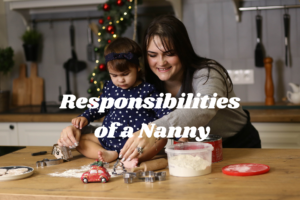Dealing with OCD in a Relationship – Treatment and Tips
Dealing
with OCD in a relationship is a bit difficult. Intrusive thoughts and
compulsions related to it make your life not so easy. But on the surface
relationship between OCD or ROCD is not easy to detect. The story gives you a
clear picture.
Thirty-year-old
Tina is an IT consultant. She is beautiful, interesting and draws a good
salary. Her husband thirty-five-year-old Mike is tall, handsome and works as an
investment banker. It was all good in the early years of marriage. Recently,
Tina has started feeling that she could have found a better partner. She feels
that her husband is not the right match for her. She knows that these thoughts
are not reasonable. But these intrusive thoughts keep coming to her mind. She
visited a psychologist who diagnosed her condition as relationship
obsessive-compulsive disorder (ROCD). So what Tina will be looking for? She
must be looking for ways to dealing with OCD in a relationship.
Here
we will try to understand what ROCD or relationship OCD is?
Meaning
or Definition of ROCD – What is the relationship OCD?
Relationship
OCD or ROCD is a condition in which the sufferers get obsessive and intrusive
thoughts about the suitability of their partners. In certain instances, they
get stuck on some flaws of their partners. They are so stuck with these
thoughts that they start taking a toll on their day-to-day lives.
In
other words, relationship OCD can be defined as a subtype of OCD in which the
sufferers have obsessive thoughts or doubts about their romantic relationship.
In
ROCD or relationship obsessive-compulsive disorder, the sufferers think that
they are not loving their partner and these thoughts bring distress to them as
these thoughts are against their moral values.
From
the above definitions, it is clear that the sufferers might be looking for
suggestions or tips to deal with OCD in a relationship.
Causes
of Relationship OCD or ROCD
It
is hard to determine the causes of OCD and the same applies to relationship OCD
or ROCD. Here we list some factors that may increase the chances of getting an
OCD.
- Changes
in some parts of the brain - Prolonged
abuse - Problematic
relationship - Death
of a loved one - Sudden
life changes - Getting
married or live-in - Hereditary
reasons (as per some experts) - Dysfunctional
childhood or adolescence
Signs
and Symptoms of Relationship OCD or ROCD
Every
disease or disorder has certain signs or symptoms. Here we list the major
symptoms of Relationship OCD.
- Unwanted
thoughts that are centered around your partner or romantic relationship. - Doubts
about whether your partner loves you or not - Too
much attention to see your partner happy - Regret
that he may have found a better partner - Intrusive
thoughts about partner’s shortcoming - Continuously
seeking your partner’s approval - Unable
to concentrate on things due to intrusive thoughts about the partner. - Seeking
assurance from the partner about their relationship - Searching
for evidence to substantiate his partner’s love, suitability, and attraction
level. - Comparison
of one’s own relationship with others
How
ROCD is treated?
No
doubt a sufferer wants help in dealing with OCD in a relationship. As
relationship OCD is a form of OCD, its treatment is the same as OCD. Here
sufferers are treated with psychotherapy, medication, self-help or a
combination.
Psychotherapy
When
it comes to psychotherapy for ROCD, most psychotherapists use Exposure and Response
Prevention Therapy (ERP) which is a specific form of Cognitive Behavior Therapy
(CBT) used for treatment.
In
ERP therapy a therapist exposes you to things and substances that trigger your
obsession and prepares you not to complete compulsions. ERP helps in a great
way to deal with OCD in a relationship.
A
psychotherapist can treat sufferers through individual therapy or couple
therapy.
Apart
from CBT, some psychotherapists also offer mindfulness training that makes
sufferers aware of intrusive thoughts about their relationship.
Transcranial
Magnetic Stimulation (TMS)
TMS
is one of the non-invasive therapies where electromagnetic pulses are sent to
the brain to relieve symptoms. Most of the time it is given when psychotherapy
and medication are not working well. It has been found effective in dealing
with OCD in a relationship.
Medication
Medicines
that work well with OCD can also treat relationship OCD as ROCD is a subtype of
OCD. Most doctors use Selective Serotonin Reuptake Inhibitors (SSRis) to control
symptoms. SSRis are available with different brand names.
Self
Help
Self-help
tips may not bring a cure to ROCD but it may help you cope better with this
disabling disorder. Your therapist may
offer some tips in this. You can also consult self-help books on ROCD that make
living with ROCD simple.
How
to Cope with ROCD?
Psychotherapy
and medication take time to show desired results. But you can’t put your life
on hold due to ROCD. You need to find ways to cope with it. Here we suggest
proven strategies to cope with ROCD.
Communicate
Better
Communication
makes complex things simple. Talk to your partner about what are you feeling so
that he can give you the right response. Tell him what are you going through
and in all probability your partner will understand.
Seek
Support
ROCD
is a sub-type of OCD. So, there are several communities and groups in your area
that help you cope with ROCD better. Search for communities in your
neighborhood, or on the internet. Go join them, discuss your ROCD type and in
all probability, you will get support.
Seek
Your Partner’s Support
As
it is relationship OCD which is very much related to your partner, you should
seek active participation from your partner. Your psychotherapist will guide
you better on how your partner can help you better in coping or dealing with
OCD in a relationship.
Say
No to Comparison
Comparison
can make things worse for sufferers. Every person is different and comparing
your partner to someone else or your situation to other create unrealistic
expectations and can’t take you anywhere.
Write
it Down
Writing
down your problems can help you see the different aspects of it. You may find
that most of your fears are unrealistic. You should list the positive and
negative sides of your life. It helps you get a better perspective of your
problem.
Mindfulness
Helps
It
is hard to tame the monkey brain. If your mind is empty intrusive thoughts will
keep crossing your mind. You can control it by practicing mindfulness
techniques. You should practice meditation and yoga. These mindfulness
techniques have been proven efficient in dealing with OCD in a relationship.








